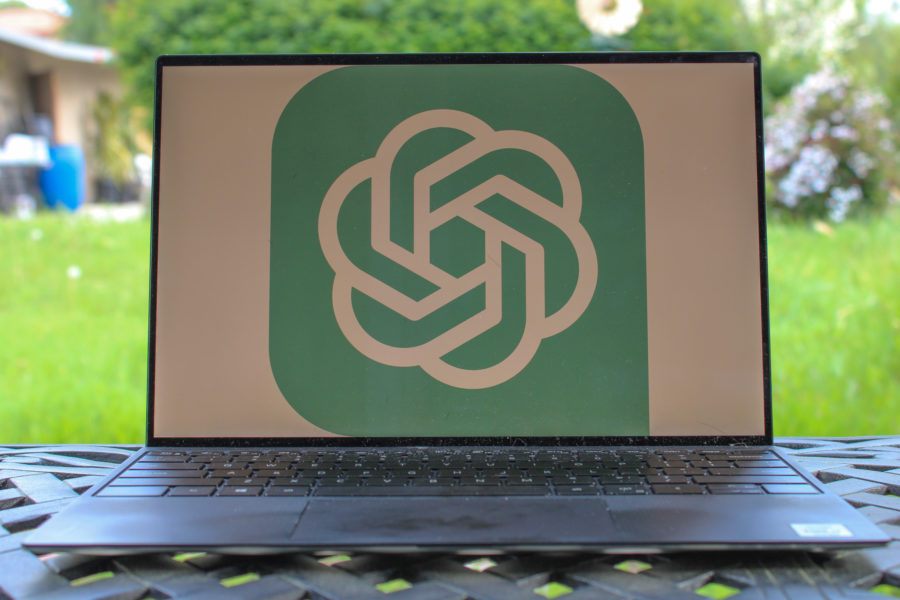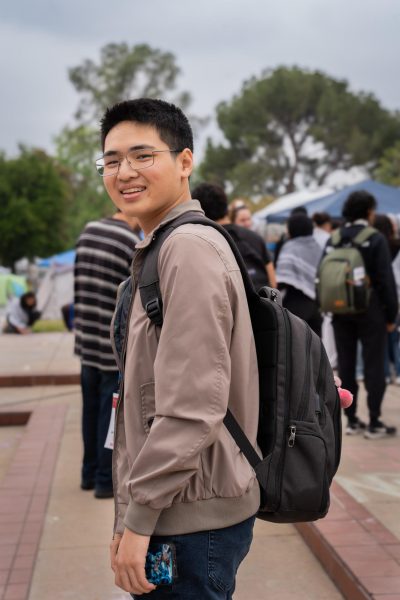ChatGPT at Mt. SAC: How should it be used?
Differing perspectives on how ChatGPT should be handled in education
ChatGPT on a laptop.
ChatGPT, a large language model which serves as a chatbot to answer questions prompted by users, has persisted as a controversial topic of discussion in academia.
To address the dilemma, Mt. SAC has created a workgroup composed of professors of different departments and one student to figure out, “How faculty might use it, how staff might use it and importantly how students might use it,” according to Raul Madrid Jr., a political science professor involved in the workgroup.
Madrid said, “Now that I’ve had some time to think about it and I’ve done a fair amount of research on it. I’m not as scared of it as I was before.”
He believes that ChatGPT can be incorporated into education as a learning tool.
“We need to know how to use it,” Madrid said. “We need to get the faculty the tools to learn how to use it and then they can deploy it. I think we can so students will benefit from that.”
Madrid gave an example of students using ChatGPT to impersonate historical political figures and learn about their ideals by having a conversation with them.
“[ChatGPT] has read Jefferson, and its read his work in the past, and so it can respond as if it were Jefferson,” he said.
ChatGPT, which can be useful to educators or a method of academic dishonesty, is divisive: according to a survey conducted by Study.com, 57% of educators find ChatGPT beneficial while 43% believe it makes the job more difficult.
Paul O’Brien, an English professor who has been teaching at Mt. SAC for 25 years, emphasized the importance of critical thinking in writing.
When asked about whether ChatGPT can be used as a tool to assist in writing, O’Brien said, “I’m looking for deeper analysis. … In my class I love, controlled, quotes, single words and single phrases. So far, ChatGPT is terrible at that.”
O’Brien also pointed out that artificial intelligence is impossible to accuse a student of, unlike plagiarism.
“If I ever accuse the student of plagiarism, I need evidence, like concrete evidence of the work that was taken,” he said. “There’s an element of academic dishonesty to [ChatGPT] and I just can’t ignore it.”
According to Business Insider, ChatGPT is able to get 1410 on the SAT, pass AP exams and the U.S. medical licensing exam and write essays that evade plagiarism scans.
“To be clear unless someone’s using [ChatGPT] right in front of you. You don’t know that they’re using it,” O’Brien said.
As of February 2023, eight K-12 school districts have officially banned ChatGPT, according to research by Study.com. The same study found that 33% of educators believed that ChatGPT usage should be banned in schools.
Although the conversation about ChatGPT is around student usage, there is little student input in a large majority of decision-making about ChatGPT.
One student, a 26-year-old business administration major, said, “A lot of professors are scared or against it, but I think it should be recognized that it’s here. Like, it’s not going to go anywhere, you know.”
The student requested anonymity because of fear that they’d be punished for using ChatGPT on assignments.
“Maybe don’t totally [exclude], just kind of incorporate it in some way,” they said. “But don’t say it’s totally okay either.”
“I have not seen anything in my syllabus or any announcements that professors made that even talk about ChatGPT,” they added.
The student used ChatGPT on a science term paper but was not able to complete the paper by only using the AI.
“One of the main things I needed to do for the paper was to look at the scientific methods that were used, but ChatGPT didn’t give me the description of that,” they said.
As the world adapts to the ever-growing use of AI in unexpected facets of society, the conversation regarding its place academia will continue to unfold, but for now, is an uncertainty.



